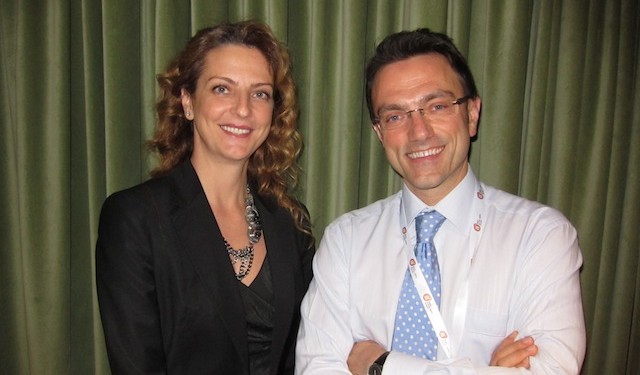AO: For years now there has been an argument about this. Some schools may prefer to be at an event that is only focused on US or UK universities and schools for example. But I believe most of the time institutions prefer to be in an international arena, where they can find students who are still deciding where they want to study and show them – through seminars or by talking to them directly – what they can offer in comparison to their competitors. Schools can also see what their competitors are offering.
News and business analysis for Professionals in International Education
Have some pie!
Aslihan Ozenc and Sedat Eren, A2 Student Fairs

SE: And look at it from the students’ perspective. We know from our agencies that most students in Turkey and Central Asia usually don’t know their options, unlike in many European countries. So they want to know what the options are.
That’s why fairs have to have the variety of countries and institutions – from language schools to degree programmes, from certificate programmes to work and travel or internship programmes. Students may want to take these programmes in combination too. The variety also helps attract more students to the fairs which benefits everyone.
“Students want to know what the options are. That’s why fairs have to have the variety of countries and institutions”
The PIE: Some schools at your recent Istanbul fair told us that fairs were important to them for brand building than direct enrolments.
SE: For many institutions the most important thing is branding, not enrolment conversions which happen later. For some schools not working with agents, it is the way to penetrate the market; for some it’s the only way to initiate the process. Not only that but also meeting the key local people. For example at our Ankara fair, every year government departments are coming and meeting institutions to decide which they will choose for next year’s government scholarship programme.
The PIE: Is Turkey a more complicated market to recruit in than others?
SE: Cultural differences are very important to remember in Turkey, the Mediterranean, Central Asia. In Japan you can meet an agency and work with them for 20 years. In Turkey within three years the staff will change, two agencies will merge, or some will split off and become smaller operations. It’s a very dynamic market and you have to be here to keep up with it. Students also make last-minute decisions, and the fairs can bring institutions into contact with these students.
AO: Students also like to connect with a school in person. You can’t give business cards that say “info@” for example. Parents need to be able to say they met you and that their children will get a good quality education and be in safe hands when they arrive at your institution. In Azerbaijan and Kazakhstan it’s similar, Egypt maybe also.
The PIE: Are there particular differences about the Central Asian markets?
SE: Some of the countries with lots of natural resources, oil and gas have very recently wealthy people. I’ve had cases where the parents come with the students and ask for the organiser of the event. They ask me, “which is the most expensive institution” because for them that’s the best one!
“Parents have asked me, ‘which is the most expensive institution’ because for them that’s the best one!”
AO: We need to help educate people sometimes. That’s another part of our job, which is why we run seminars. It’s positive that students from these markets want to go abroad, but they may have had much access to the right information.
The PIE: And how is the Turkish market looking?
AO: It’s changing. The numbers going out from Turkey increased overall last year, although those going to the US decreased a little. Germany has introduced a lot of postgraduate courses in English, Italy too at the undergraduate level, so competition is getting tougher.
SE: And we have to consider Saudi Arabia, Qatar and other Middle Eastern countries which have government scholarship programmes now. Because they are sending more students, Turkey has slipped in terms of its size as a source, although in real terms its numbers have continued to rise. If anything our undergraduate market has decreased slightly, but HE and ELT are still very buoyant.
Still looking? Find by category:


